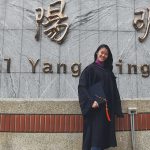In a blink of an eye, it’s been 10 years since I’ve enrolled in the gruelling Bachelor of Pharmacy (BPharm) programme at IMU and graduated. Looking back, I feel that BPharm has prepared me well for the workforce, with its vast and wide syllabus and I’ve been able to cope well at all the institutions or departments I’ve been placed at. Be it something as specific as oncology, BPharm had a module on it (this helped as I would have already understood some basic concepts). 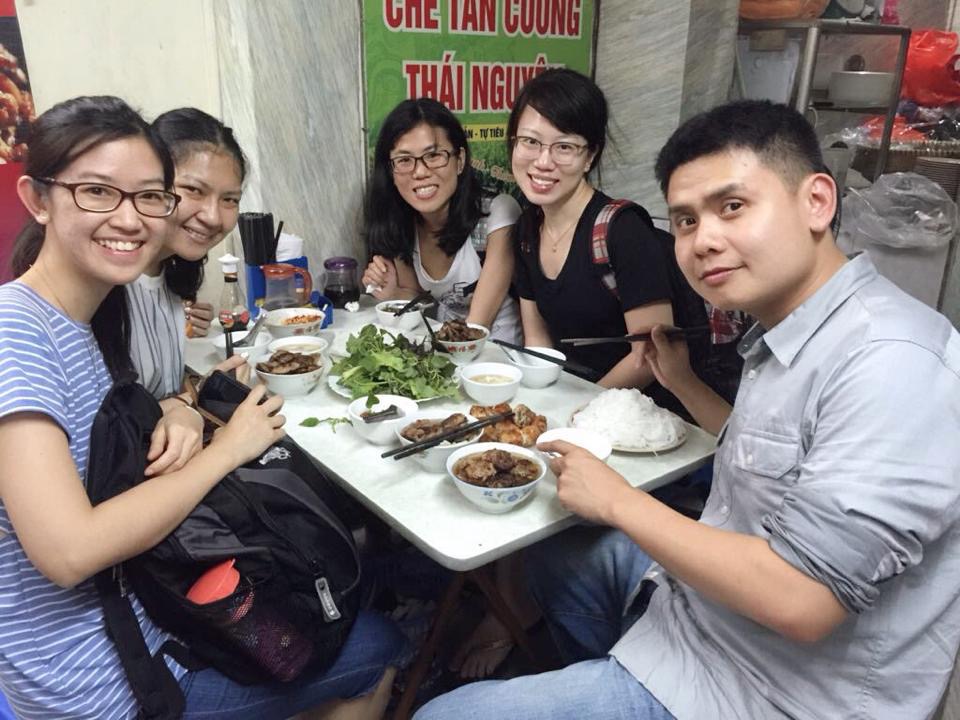
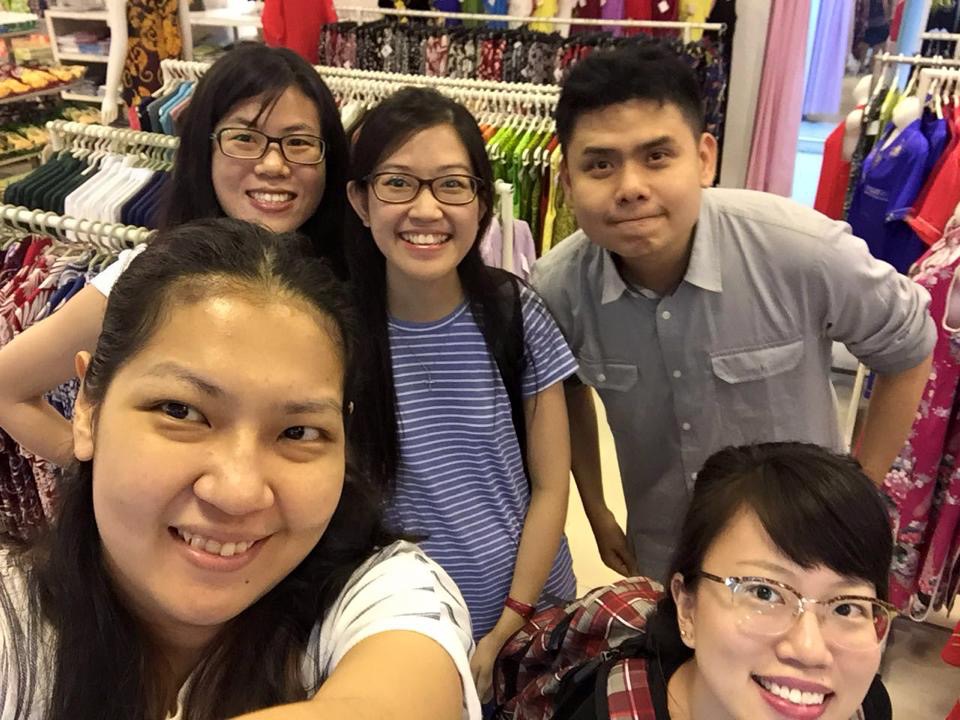 When I graduated, I aspired to be a clinical pharmacist in a medical ward. To my dismay, I was placed as a Provisionally Registered Pharmacist at the National Pharmaceutical Control Bureau (now known as the National Pharmaceutical Regulatory Agency, NPRA). Working in the Malaysian equivalent of the US FDA was initially not appealing to me at all. However, I am a keen learner and I believe that there are opportunities at every workplace you’re placed at, as long as you have the right mind-set. I underwent rotation in all the departments in the NPRA – the product registration unit, compliance and licensing unit, and the quality control unit amongst others. What the NPRA does – it conducts drug registration and cosmetic notification through critical evaluation of technical data, carry out analytical tests to determine the quality, safety and efficacy of drugs and cosmetics, carry out post-marketing surveillance of pharmaceutical products in the market through random sampling or routine surveillance, manage the Adverse Drug Reaction Monitoring Programme and implement the licensing scheme for pharmaceutical manufacturers (including a licensing scheme for clinical trials). The ultimate goal of the NPRA is to make medicines in Malaysia safe, of quality and efficacious for all.
When I graduated, I aspired to be a clinical pharmacist in a medical ward. To my dismay, I was placed as a Provisionally Registered Pharmacist at the National Pharmaceutical Control Bureau (now known as the National Pharmaceutical Regulatory Agency, NPRA). Working in the Malaysian equivalent of the US FDA was initially not appealing to me at all. However, I am a keen learner and I believe that there are opportunities at every workplace you’re placed at, as long as you have the right mind-set. I underwent rotation in all the departments in the NPRA – the product registration unit, compliance and licensing unit, and the quality control unit amongst others. What the NPRA does – it conducts drug registration and cosmetic notification through critical evaluation of technical data, carry out analytical tests to determine the quality, safety and efficacy of drugs and cosmetics, carry out post-marketing surveillance of pharmaceutical products in the market through random sampling or routine surveillance, manage the Adverse Drug Reaction Monitoring Programme and implement the licensing scheme for pharmaceutical manufacturers (including a licensing scheme for clinical trials). The ultimate goal of the NPRA is to make medicines in Malaysia safe, of quality and efficacious for all. 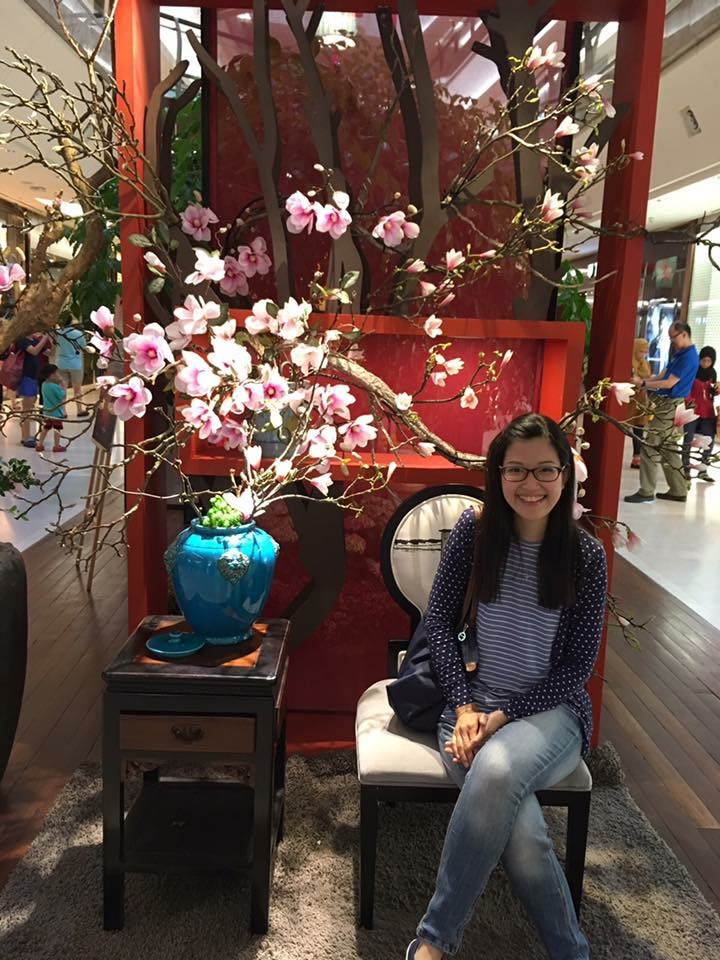 However, despite a great working experience at the NPRA, my desire for contact with patients and clinical experiences led me to my next working adventure – Hospital Kuala Lumpur. I consider myself very privileged to be able to work at this massive and esteemed government hospital, which is now the national referral hospital (some trivia: it has 84 wards, 2300 beds and approximately 11000 staff in various fields and disciplines, making it one of the largest hospitals in the world). Initially I was placed in the outpatient department because I have no experience whatsoever in dealing with patients prior to this, and the best place to be for a new pharmacist was the dispensary. In the outpatient pharmacy department, aside from dispensing, I’ve learnt about inventory management, psychosocial skills such as dealing with difficult and demanding patients, and also participated in the diabetic medication therapy adherence clinic (MTAC). This is an ambulatory care service offered by pharmacists in collaboration with physicians with the aim of helping diabetic patients to achieve better medication adherence level and glycaemic control. Patients enrolled in this service will receive medication adherence assessment, identification and management of drug related problems, medication counselling, monitoring of clinical outcomes and diabetes education by the pharmacist. However, after three rewarding years in the outpatient pharmacy department, I felt the need to move on to hone my clinical skills. Perhaps like I initially envisioned after graduation; in a busy medical ward, being part of the healthcare team. I was very fortunate that my then Head of Department understood my desire to learn and improve myself; she placed me in an oncology ward.
However, despite a great working experience at the NPRA, my desire for contact with patients and clinical experiences led me to my next working adventure – Hospital Kuala Lumpur. I consider myself very privileged to be able to work at this massive and esteemed government hospital, which is now the national referral hospital (some trivia: it has 84 wards, 2300 beds and approximately 11000 staff in various fields and disciplines, making it one of the largest hospitals in the world). Initially I was placed in the outpatient department because I have no experience whatsoever in dealing with patients prior to this, and the best place to be for a new pharmacist was the dispensary. In the outpatient pharmacy department, aside from dispensing, I’ve learnt about inventory management, psychosocial skills such as dealing with difficult and demanding patients, and also participated in the diabetic medication therapy adherence clinic (MTAC). This is an ambulatory care service offered by pharmacists in collaboration with physicians with the aim of helping diabetic patients to achieve better medication adherence level and glycaemic control. Patients enrolled in this service will receive medication adherence assessment, identification and management of drug related problems, medication counselling, monitoring of clinical outcomes and diabetes education by the pharmacist. However, after three rewarding years in the outpatient pharmacy department, I felt the need to move on to hone my clinical skills. Perhaps like I initially envisioned after graduation; in a busy medical ward, being part of the healthcare team. I was very fortunate that my then Head of Department understood my desire to learn and improve myself; she placed me in an oncology ward. 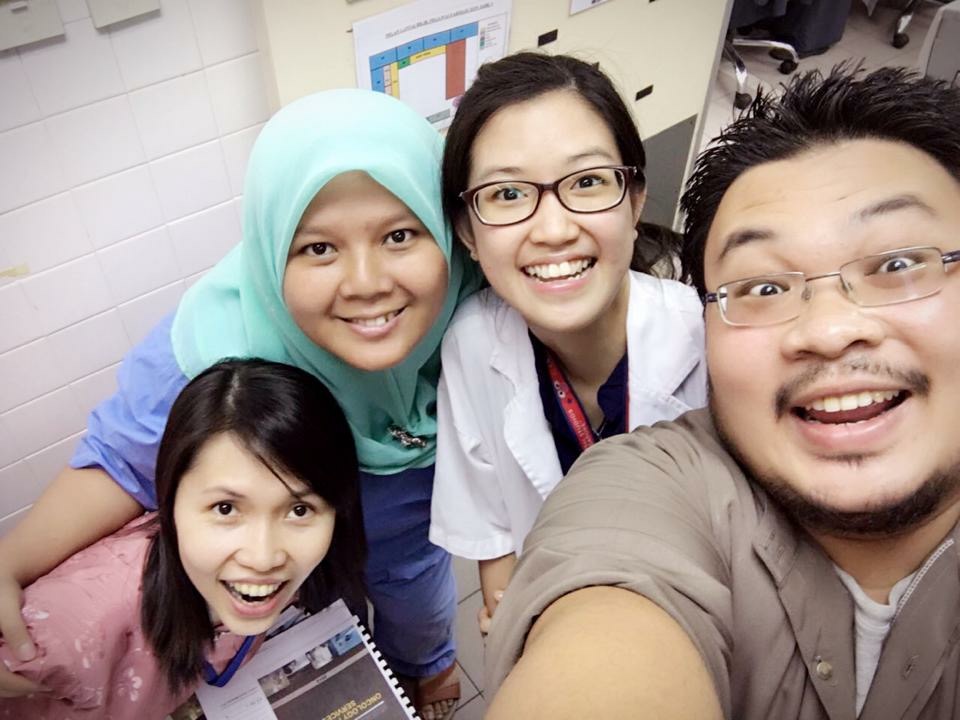 Initially I was daunted (me, in a highly specialised field like oncology? and with zero ward experience) but I believe that challenges should be embraced and it has been a rewarding journey. Being in the oncology ward and working alongside oncologists, oncology medical officers, hardworking and amazing oncology nurses and ward attendants have been the best years of my working life and I am extremely humbled by this opportunity. What I do on a daily basis – cytotoxic drug reconstitution (cytotoxic drugs are hazardous substances and have to be prepared in an aseptic environment by trained personnel, and the doses for each patient are individualised – ie. the vials of chemotherapy drugs have to be reconstituted before it can be administered to the patient), participate in ward rounds and perform therapeutic interventions where necessary, provide input to physicians in selecting the medication therapy that best meets the patient’s needs and contributes effectively to the overall therapy goals, perform medication history taking and reconciliation of patients’ own medications, follow-up on patients’ progress in the ward to ensure that therapeutic outcomes are met, and counselling cancer patients on their treatment regimens and medications.
Initially I was daunted (me, in a highly specialised field like oncology? and with zero ward experience) but I believe that challenges should be embraced and it has been a rewarding journey. Being in the oncology ward and working alongside oncologists, oncology medical officers, hardworking and amazing oncology nurses and ward attendants have been the best years of my working life and I am extremely humbled by this opportunity. What I do on a daily basis – cytotoxic drug reconstitution (cytotoxic drugs are hazardous substances and have to be prepared in an aseptic environment by trained personnel, and the doses for each patient are individualised – ie. the vials of chemotherapy drugs have to be reconstituted before it can be administered to the patient), participate in ward rounds and perform therapeutic interventions where necessary, provide input to physicians in selecting the medication therapy that best meets the patient’s needs and contributes effectively to the overall therapy goals, perform medication history taking and reconciliation of patients’ own medications, follow-up on patients’ progress in the ward to ensure that therapeutic outcomes are met, and counselling cancer patients on their treatment regimens and medications. 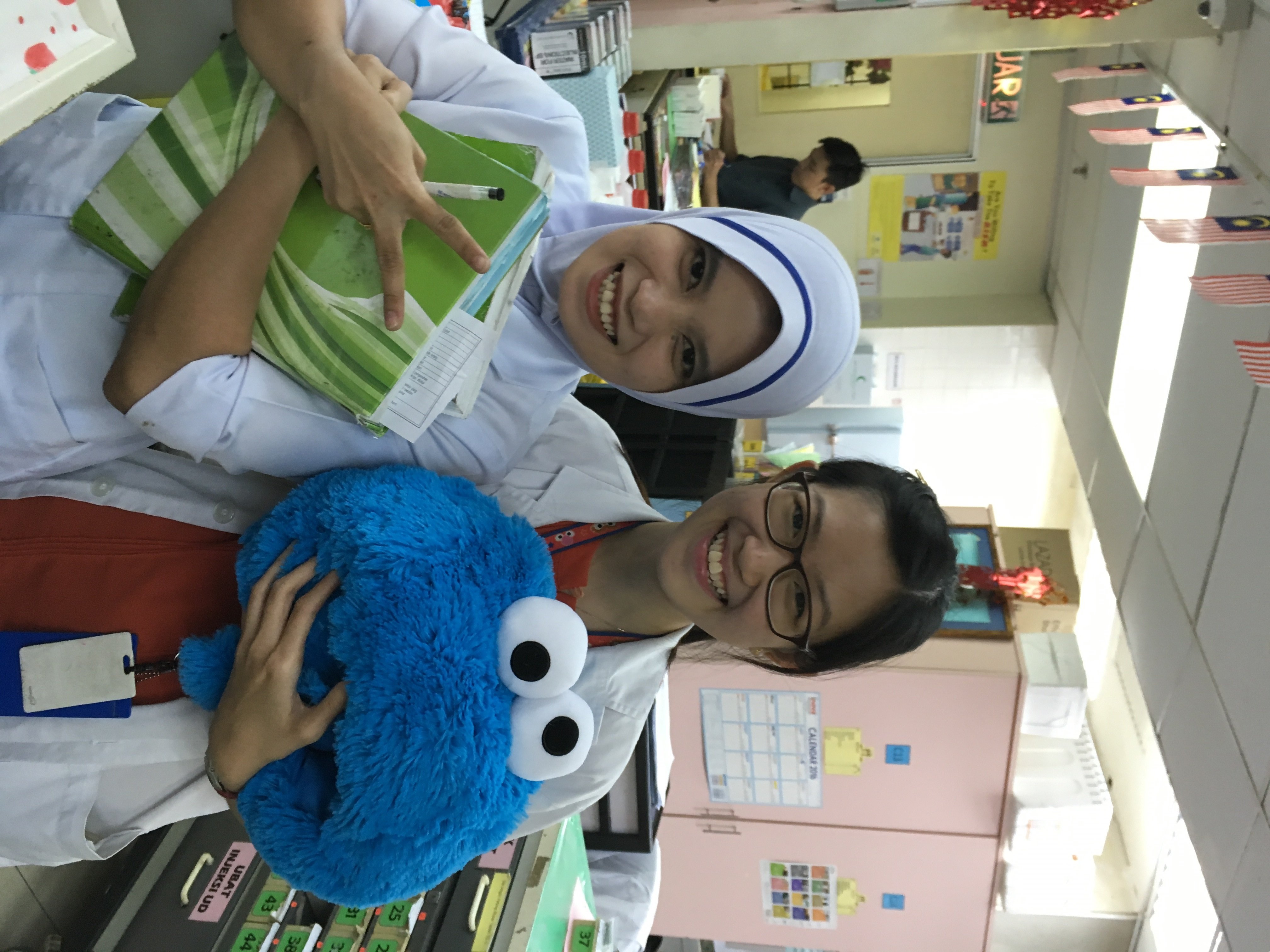 Cancer is an incredibly emotional and delicate disease that stirs up feelings of fear, grief, depression and uncertainty. Counselling a cancer patient with emotional needs is indeed a challenge, but I have come to realise that pharmacists play an important role in counselling a cancer patient at many points in their cancer journey – at the point of diagnosis, at the point of treatment, at the point of post-treatment care, at the point of recurrence and even their family members at the patients’ end of life. Cancer patients are counselled on their treatment goals, possible side effects of chemotherapy (and how to overcome them), and the importance of compliance to treatment. Each counselling session needs to be catered on the patients’ needs and requirements at that point in time. I’ve come to realise that it is always important to portray calmness and sincerity with cancer patients and to go the extra mile if required (preparing a chemotherapy calendar for them for instance) – they appreciate these qualities in a healthcare professional. Chemotherapeutic drugs are released faster than we can understand about them. This keeps me on my toes and I always have to read up about new drugs and therapies available (before my patients ask me about them).
Cancer is an incredibly emotional and delicate disease that stirs up feelings of fear, grief, depression and uncertainty. Counselling a cancer patient with emotional needs is indeed a challenge, but I have come to realise that pharmacists play an important role in counselling a cancer patient at many points in their cancer journey – at the point of diagnosis, at the point of treatment, at the point of post-treatment care, at the point of recurrence and even their family members at the patients’ end of life. Cancer patients are counselled on their treatment goals, possible side effects of chemotherapy (and how to overcome them), and the importance of compliance to treatment. Each counselling session needs to be catered on the patients’ needs and requirements at that point in time. I’ve come to realise that it is always important to portray calmness and sincerity with cancer patients and to go the extra mile if required (preparing a chemotherapy calendar for them for instance) – they appreciate these qualities in a healthcare professional. Chemotherapeutic drugs are released faster than we can understand about them. This keeps me on my toes and I always have to read up about new drugs and therapies available (before my patients ask me about them).
| Quotes |
| “You leave your comfort zone, have an experience that transforms you, and then you recover and do it again” – Matthew Winkler |
| “Your passion is something you love to do. It is what you choose to do when you have a choice” – Arun Lakra |
This article is written by pharmacy alumna, Elaine Kan.







